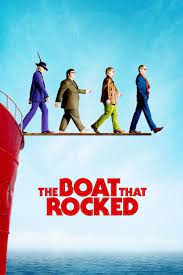The Golden Age of Radio
Radio was the most popular form of entertainment in the 30s and 40s. Even in the early 30s, over half the households in the U.S. had a radio in their homes.
It’s the era when soap operas were invented, when you could ride on the adventures with the Lone Ranger, or listen to the crazy comedy of Burns and Allen. One dramatic program, The Shadow, developed its own catchphrase, “The weed of crime bears bitter fruit! Crime does not pay. The Shadow knows!”
We interrupt this program…
People tuned to their radios to the hear about the Hindenburg air ship landing in the U.S. after making its first transatlantic flight. What they heard ended up being a catastrophe in real time. The Hindenburg Disaster on radio ended up coining an iconic phrase… “Oh, the humanity…”
What made radio so impactful is how quickly news and information could get out to the people. And, it allowed people who didn’t know how to read, access to information they wouldn’t have.
A calm voice, sitting no where near a fireplace
FDR broadcasted over 50 Fireside Chats through the Depression Era and into World War II. He used these chats to explain policies ranging from the New Deal to Social Security and updates on the war. He also used the radio broadcasts to stomp out rumors circulating among the American people.
In fact, experts credit the first of FDR’s Fireside Chats from stopping a banking panic in 1933 during the Depression.
It’s only Rock and Roll, and I like it
Radio disc jockey Alan Freed created the phrase “Rock ‘n Roll.” He played Elvis when other stations still played Sinatra. He’s also credited with integrating his playlists; choosing to play the music originally recorded by Black artists, rather than the “cover” versions recorded by squeaky white artists, like Pat Boone.
At the time, it was customary for record executives to offer DJs an “incentive” to play their artists’ records. That incentive could be money, booze, drugs or “other services.” Congress ended up investigating Freed along with Dick Clark for the payola. The scandal ruined Freed’s career. This 3 minute video give you some background.
You wouldn’t have your smart phone if it weren’t for transistors
The invention of transistors in the mid 50s meant you didn’t have to sit in front of the radio to hear it. Transistors downsized those big bulky radios so you could fit them in your pocket. That meant that when mom and dad sent you to bed in the 50s, you could put your transistor radio in bed with you, turn down the volume and listen to music or baseball games, or whatever.
Transistors meant you could listen to the radio on-the-go, which lead to the installation of radios in…. cars.
Engineers say the invention of the transistor lead to the Information Age, computers, the Internet and your smart phone. Those things have had a HUGE impact on our society.
So, something you take for granted… having tunes in your pocket… can be traced back to the invention of a transistor.
The Martian Invasion
In 1938, Orson Wells another episode in his Mercury Theater series. He opened his radio broadcast by saying he based that night’s radio on H.G. Wells’ book The War of the Worlds.
Wells wrote the play to sound like news bulletins breaking into regular programming. Listeners thought they were listening to a play-by-play of a Martian invasion. Panic struck.
Orson Wells said people actually believed Martians had landed. Wells said people hide out in the mountains weeks after the broadcast.
In retrospect, the “panic” may have been a bit exaggerated. Wells little play aired opposite the extremely popular Charlie McCarthy Show and The Chase and Sanborn Hour. So, not that many people were actually listening.
There’s also a theory that newspapers played up the incident as bad broadcasting that could hurt the public. Why? They feared radio was cutting into their profits.
I want my… MTV... Pirate Radio
In the 60s, the BBC pretty much controlled the airwaves. They only programmed a couple of hours a week to rock-in-roll in favor of more dignified classical music.
Some clever rock-n-roll DJs got a ship, anchored it off the English coast and started broadcasting back to jolly old England. The British Government couldn’t do anything about it because their DJs anchored their floating radio station in international waters.
If it weren’t for Radio Caroline, we may never have heard about the Beatles, the Rolling Stones, the Who, the Kinks and many other British Invasion bands.
BTW – You might of watched a 2009 movie based on Radio Caroline. It’s called “The Boat that Rocked.”

Howard Stern

“The King of All Media” gained popularity for his anything goes radio programs. He’s also known for being the king of Federal Communications Commission fines. Between 1990 and 2004, the FCC fined stations carrying Stern’s radio show $2.5 million.
Stern isn’t the first radio DJ to be fined, but his story represents the struggle between regulating the public airwaves and Free Speech.
Howard stopped wracking up FCC fines when he moved to Sirius Radio in 2006. Sirius is satellite radio and doesn’t use the public airwaves, so the FCC has no control over Stern’s broadcasts.
The Assignment
Head on over to Canvas and look for the Blog:RadioImpact assignment.